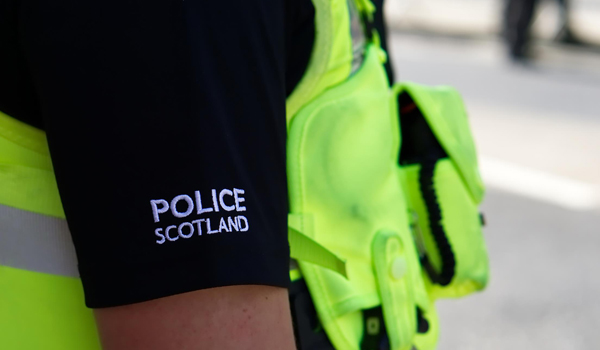Recorded crime at 50-year low despite surge in cybercrime and Covid-related offences
Recorded crime in Scotland remains at one of the lowest levels in nearly 50 years, despite almost 21,000 crimes recorded under coronavirus-related legislation during the first full year of their existence, according to latest figures.
Annual statistics for 2021/21 also show that cybercrime almost doubled during the pandemic while drink and drug-driving offences jumped by 23 per cent.
There were 20,976 crimes recorded under coronavirus-related legislation, compared to just 107 towards the end of 2019/20.
A total of 8,097 driving under the influence (DUI) offences were recorded by police in 2020/21, up from 6,594 in the previous 12 months, and accounted for seven per cent of all motor vehicle offences. Over the longer term, DUI has increased by nine per cent since 2011/12.
A recent poll by personal breathalyser firm AlcoSense found that 39 per cent of Scots admitted their alcohol consumption increased during lockdown.
“With pubs and restaurants closed, people were drinking more at home and then finding themselves still over the limit the next morning,” said Hunter Abbott, managing director of AlcoSense.
The poll also found that a third of Scots (34 per cent) think their ability to drive is only impaired if they are over the legal drink drive limit.
The Scottish drink-drive limit was lowered in December 2014 from 80mg of alcohol in 100ml of blood to 50mg.
However, a recent study published in the Journal of Health Economics suggests there has been no change across all types of accidents involving alcohol following the introduction of the stricter limit.
“Even a small amount of alcohol slows your reaction time, inhibits judgement and reduces both concentration and coordination – increasing the likelihood of an accident,” added Mr Abbott.
Changes to the Road Traffic Act 1988, which introduced new offences of driving or being in charge of a motor vehicle with concentration of a specified controlled drug above a specified limit, came into force on October 21, 2019. There were 616 of these new offences recorded in 2019/20, and 2,491 in 2020/21, the first full year of the legislation being in force.
The Scottish government says while offences of driving or being in charge of a motor vehicle while impaired through alcohol or drugs already existed, evidence of impaired driving is not required for the new offences.
“This has resulted in additional offences being recorded in relation to drug-driving and has therefore played a part in the increase in DUI offences,” it added.
Most other categories of crime decreased over the 2020/21 year, with a total of 246,511 crimes recorded by Police Scotland – one of the lowest levels of recorded crime since 1974.
Non-sexual crimes of violence decreased by four per cent, from 9,316 to 8,972. This includes the recording of 1,641 crimes under the Domestic Abuse (Scotland) Act 2018 in 2020/21, the second year this legislation has been in place
Sexual crimes were down by two per cent from 13,364 to 13,131.
Crimes of dishonesty fell to their lowest level since 1971, down by 19 per cent, from 111,409 to 89,731.
Fire-raising and vandalism decreased by ten per cent from 47,731 to 42,964, the lowest level seen since 1975.
The report noted that the increase in cybercrime may be due to the significant impact of the Covid-19 pandemic, including behavioural changes such as increased online shopping.
The National Statistics Recorded Crime in Scotland 2020/21 bulletin estimates that 14,130 cybercrimes were recorded by the police in Scotland in 2020-21, almost double the 2019/20 figure.
Around a third of all sexual offences were also cybercrimes, the report said, while the number of cyber frauds rose by 149 per cent from the previous year, reaching a total of 8,580.
Justice Secretary Keith Brown said: “By all main measures, crime, including violent crime, is now considerably lower than it was a decade ago, with fewer victims.
“These statistics show how crime in areas like vandalism and dishonesty, the sorts of crime that affects people’s everyday lives, has fallen – with levels not seen since the 1970s.
“There is still work to be done as the figures on cybercrime show – which is why we have this year published a prevention, awareness and enforcement strategy to make Scotland an inhospitable place for scammers.
“And while Covid-19 has no doubt had an impact on the figures, recorded crime was on a downward trend beforehand, and through the measures we recently announced in our Programme for Government we will continue to make Scotland a safe place to live.
“It sets out how we intend to transform the way in which justice services are delivered, moving away from the use of custody for those who don’t pose a risk of serious harm, while protecting the police resource budget in real terms for the entirety of the Parliament.”
He added: “Overall, these very positive trends are testimony not just to the hard work of Police Scotland but to the vital support the Scottish government has put in place to enable officers to do their jobs effectively.”


